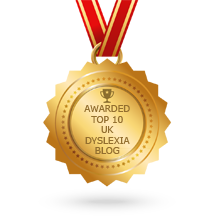How To Help Your Child At Home With Literacy And Maths During The Summer Holidays.
So your children are now off school for six weeks and are free to play and relax away from the pressures of school. However for children that live with Dyslexia or Dyscalculia (or both), it is advantageous to find ways to help them to 'top up' their literacy and maths during the summer holidays. They might not thank you now but they might in the future!
Dominic Hauschild, Advocacy Assistant from the Driver Youth Trust would like to share with you The Driver Youth Trust's Parent's Helping At Home publication, but before that, Dominic has kindly put together some information regarding SEND in schools and information about the Trust's latest initiative, Drive For Literacy.
Dominic writes:
The Driver
Youth Trust (DYT) is a national charity that works in partnership with
schools to improve the literacy outcomes for those pupils who struggle with
literacy and may have an SEND, such as dyslexia.
Literacy difficulties can have a severe impact on the life
chances of children and young people. Educational reforms brought in since
2010, such as the Children and Families Act (2014) and the accompanying Special
Education Needs and Disability (SEND) Code of Practice have increased the
responsibility and accountability of teachers.
 |
| The Driver Youth Trust - Click For Information |
Our first report, published in 2014 called Fish in the Tree: Why we are failing
children with dyslexia found that 35% of teachers spent less than a day of
their Initial Teacher Training (ITT) on how to support children with literacy.
Only 18% were offered an extra module on SEND, and 69% spent less than a day
training students on dyslexia. This meant that 60% of teachers did not feel
satisfied with the training provided, despite 84% of teachers saying they
thought it was important that teachers are trained in teaching children with
dyslexia. More can be read here, along with our
latest piece of research, Joining the
Dots: Have recent reforms worked for those with SEND.
That is why we developed our flagship programme, Drive for
Literacy (DfL). DfL is a comprehensive model that drives systemic change in the
practice and structure of schools, it provides the skill set,
 |
| Report from Jabbla. Download today. |
Over the course of the last several years we have produced a
wide variety of resources to these ends, for our target audiences: parents,
teachers (primary and secondary), school leaders and learners. They are all
embedded in the graduated response to deliver quality first teaching and
support universal targeted and specialist provision.
Some of these resources include educational videos like ‘How does it feel to be dyslexic?’
and ‘Top 10 tips for teaching dyslexics in the classroom’ with comedian Eddie Izzard. There are
also guidelines for teacher’s classroom approaches like our Timeline of Best Practice, and a huge
range of in-class resources such as intervention grids, mnemonic presentations,
spelling support strategies and classroom checklists. They can be found on the Drive for Literacy website.
As we go into the Summer holidays, we will be producing even
more content for Drive for Literacy, including more videos, blogs and resources.
Until then here is a link
to view our Parents Handbook – how to help your child at home with Literacy and
Maths during the Summer holidays. You can also follow us on Twitter here.
Dominic Hauschild
Driver Youth Trust
@DriverTrust










No comments: